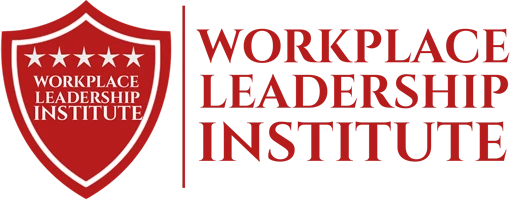Professional Membership
This Professional Membership is for Seasoned managers that are interested in building new skills and developing fresh leadership perspectives.
The Professional Membership is designed Mid-Level Professionals who hold leadership positions in their organizations and wish to further develop their leadership skills. They represent: Regional Managers, Operations Managers, Human Resource Managers, Equipment Managers, Project Managers in IT, Health, Admin Managers and frontline Supervisors.
In this professional membership, you’ll learn expert skills to engage staff and increase their productivity. It benefits mid-career leaders who supervise employees or manage team performance, including department supervisors in business and government, office managers, business administrators, team leaders, regional supervisors, plant and production managers, frontline managers, and HR.
As a member, the certification exam will certify that you are able to mobilize high-performing teams, resolve conflicts among teams, meet the challenges and opportunities facing their own organization.
WHAT OUR MEMBERSHIP WILL DO FOR YOU
- Expand your workplace leadership journey with in-depth courses.
- Access 10 Workplace Leadership Certification Courses, Assessment and Exams.
- Connect with thought leaders within our elite community.
- Access to our Monthly Webinar with industry leaders.
- Free Workplace Leadership Book for mid-level managers.
- Feature in our public Fellows Directory- Your picture and professional profile will be published on our website.
- Membership Discount to attend the Workplace Leadership Conference every year.
COURSE OUTLINE
Workplace Diversity, Equity and Inclusion
COURSE DESCRIPTION
The world is diverse; it is made up of people who have different backgrounds, traditions, and beliefs. Diversity, equity, and inclusion (DEI) creates a culture where every individual is acknowledged and supported, regardless of their differing background. It helps us to recognize the value in diverse voices, as well as other individual differences, such as gender, race, religion, ethnicity, or sexual orientation. Ultimately, a diverse workplace will lead to better innovation and success. Through inclusive language and leadership, everyone is encouraged to evolve both personally and professionally.
Many organizations are working towards fostering a workplace culture that is committed to DEI practices and ensuring that every voice is heard. The Diversity, Equity, and Inclusion course will provide participants with the tools to recognize social biases, respond to microaggressions, as well as provide resources to create a safe and welcoming work environment. With strong team commitment and courage, we can create a sense of belonging for everyone.
COURSE OUTLINE
Getting Started
Module One: Introduction to Diversity, Equity, and Inclusion
Module Two: Dimensions of Diversity (I)
Module Three: Dimensions of Diversity (II)
Module Four: Breaking Down Social Biases
Module Five: Addressing Microaggressions
|
Module Six: Communication Strategies
Module Seven: Inclusive Leadership
Module Eight: Prioritizing DEI in the Workplace
Module Nine: Workplace Culture and Policies
Module Ten: Encouraging Respect and Belonging
Wrapping Up
|
Building a High Performing Team
COURSE DESCRIPTION
Teams are unavoidable in any business. The key to successful team building is addressing the importance of chemistry. By staying aware of the chemistry as you build the group, you will increase the chance of avoiding pitfalls and developing a sense of unity.
With our Team Building Through Chemistry workshop, your participants will discover the specifics of how building a team through chemistry will lead to success. It is not enough to have a group of people just work on a project. They need to connect and utilize each other’s strength through team chemistry.
COURSE OUTLINE
|
Getting Started
Module One: Understanding Teams
Module Two: Team Development Model
Module Three: Chemistry in Teams
Module Four: Diversity
Module Five: Vision and Goals
|
Module Six: Roles
Module Seven: Leadership Functions
Module Eight: Develop Cohesion
Module Nine: Build Relationships
Module Ten: Direction of Team
Wrapping Up
|
Supervising Others
COURSE DESCRIPTION
Supervising others can be a tough job. Between managing your own time and projects, helping your team members solve problems and complete tasks, and helping other supervisors, your day can fill up before you know it.
The Supervising Others workshop will help supervisors become more efficient and proficient, with information on delegating, managing time, setting goals and expectations (for themselves and others), providing feedback, resolving conflict, and administering discipline.
COURSE OUTLINE
|
Managing Generation Gaps at Work
COURSE DESCRIPTION
While having various cultures in one workplace can present communication problems and conflicts, the benefits of such a variety in the workplace outweigh it. The workplace can present challenges to management in terms of handling the different generations present. As older workers delay retiring and younger workers are entering the workforce, the work environment has become a patchwork of varying perspectives and experiences, all valuable to say the least.
The Generation Gaps workshop will help participants understand the various generations present at work. Both the young and older worker will have ideas and suggestions to offer, which will help the organization thrive in the marketplace. Learning how to deal with the Generation Gaps at work will help you become a better manager or co-worker.
COURSE OUTLINES
Getting Started
Module One: History
Module Two: Traditionalist
Module Three: Baby Boomers
Module Four: Generation X”s
Module Five: Generation Y”s (Millennial)
|
Module Six: Generation Z
Module Seven: Differentiations Between
Module Eight: Finding Common Ground
Module Nine: Conflict Management (I)
Module Ten: Conflict Management (II)
Wrapping Up
|
Delivering Constructive Criticism
COURSE DESCRIPTION
Delivering Constructive Criticism is one of the most challenging things for anyone. Through this workshop your participants will gain valuable knowledge and skills that will assist them with this challenging task. When an employee commits an action that requires feedback or criticism it needs to be handled in a very specific way.
Constructive Criticism if done correctly will provide great benefits to your organization. It provides the ability for management to nullify problematic behaviors and develop well rounded and productive employees. Constructive feedback shows an employee that management cares about them and will invest time and effort into their careers.
COURSE OUTLINES
Getting Started
Module One: When Should Feedback Occur?
Module Two: Preparing and Planning
Module Three: Choosing a Time and Place
Module Four: During the Session (I)
Module Five: During the Session (II)
|
Module Six: Setting Goals
Module Seven: Diffusing Anger or Negative Emotions
Module Eight: What Not to Do
Module Nine: After the Session (I)
Module Ten: After the Session (II)
Wrapping Up
|
Conflict Resolution in the Workplace
COURSE DESCRIPTION
Wherever two or more people come together, there is bound to be conflict. This course will give participants a seven-step conflict resolution process that they can use and modify to resolve conflict disputes of any size. Your participants will also be provided a set of skills in solution building and finding common ground.
In the Conflict Resolution workshop, participants will learn crucial conflict management skills, including dealing with anger and using the Agreement Frame. Dealing with conflict is important for every organization no matter what the size. If it is left unchecked or not resolved it can lead to lost production, absences, attrition, and even lawsuits.
COURSE OUTLINES
|
Servant Leadership
COURSE DESCRIPTION
Servant leadership can seem like a contradicting term, but it is becoming a very popular tool in many businesses. Servant leadership is a philosophy that involves focusing on others, on their success, and in turn to build better relationships that benefit both manager and employee. Servant leadership shows that managers can be great leaders while boosting their employee’s confidence and further their success at the same time.
With our Servant Leadership workshop your participants will focus on the growth and development of their employees and ensuring their success. In doing so, the leader succeeds when their employees do. With a business team, servant leadership can not only help employees achieve and grow, but it can also benefit their leaders and the company as a whole.
COURSE OUTLINE
Getting Started
Module One: What is Servant Leadership?
Module Two: Leadership Practices
Module Three: Share the Power
Module Four: Characteristics of a Servant Leader
Module Five: Barriers to Servant Leadership
|
Module Six: Building a Team Community
Module Seven: Be a Motivator
Module Eight: Be a Mentor
Module Nine: Training Future Leaders
Module Ten: Self-Reflection
Wrapping Up
|
Communication Strategies
COURSE DESCRIPTION
For the better part of every day, we are communicating to and with others. Whether it’s the speech you deliver in the boardroom, the level of attention you give your spouse when they are talking to you, or the look you give the cat, it all means something.
The Communication Strategies Course will help participants understand the different methods of communication and how to make the most of each of them. These strategies will provide a great benefit for any organization and its employees. They will trickle down throughout the organization and positively impact everyone involved.
COURSE OUTLINE
Getting Started
Module One: The Big Picture
Module Two: Understanding Communication Barriers
Module Three: Paraverbal Communication Skills
Module Four: Non-Verbal Communication
Module Five: Speaking Like a STAR
|
Module Six: Listening Skills
Module Seven: Asking Good Questions
Module Eight: Appreciative Inquiry
Module Nine: Mastering the Art of Conversation
Module Ten: Advanced Communication Skills
Wrapping Up
|
Developing Emotional Intelligence
COURSE DESCRIPTION
Taking control over the emotions that shape our lives can have powerful effects. Emotional intelligence (EI) is the ability to recognize and manage our emotions, behaviors, and impulses, as well as apply this knowledge to the world around us. It encourages self-awareness, internal motivation, and the exploration of diverse perspectives. Through effective and authentic communication, emotional intelligence will create positive relationships within any organization.
Emotional intelligence is a skill that can be developed, in which these skills will help you to maximize your personal and professional success. The Developing Emotional Intelligence course will provide participants with the tools to gain control over emotions, navigate challenging situations, and communicate empathetically. With emotional intelligence, you can build a happy and prosperous life.
COURSE OUTLINE
Getting Started
Module One: Introduction to Emotional Intelligence
Module Two: The Components of EI
Module Three: Tools to Gain Control
Module Four: Verbal Communication Skills
Module Five: Nonverbal Communication Skills
|
Module Six: Managing Relationships With Others
Module Seven: Overcoming Obstacles
Module Eight: Application to Business Practices
Module Nine: Benefits of Being Emotionally Aware
Module Ten: Making an Impact
Wrapping Up
|
Coaching and Mentoring Skills for Managers
COURSE DESCRIPTION
You are in your office looking over your performance report and it happened again. Your low performing employee failed to meet quota this month even after you spoke with them about the importance of meeting goals. This employee has a great attitude, and you know they can do better. You just do not know how to motivate them to reach the goal. Money used to work, but that has worn off. You are baffled and you know being frustrated makes matters worse. What do you do?
The Coaching and Mentoring focuses on how to better coach your employees to higher performance. Coaching is a process of relationship building and setting goals. How well you coach is related directly to how well you are able to foster a great working relationship with your employees through understanding them and strategic goal setting.
COURSE OUTLINES
Getting Started
Module One: Defining Coaching and Mentoring
Module Two: Setting Goals
Module Three: Understanding the Reality
Module Four: Developing Options
Module Five: Wrapping it All Up
|
Module Six: The Importance of Trust
Module Seven: Providing Feedback
Module Eight: Overcoming Roadblocks
Module Nine: Reaching the End
Module Ten: How Mentoring Differs from Coaching
Module Twelve: Wrapping Up
|
OUR METHODOLOGY
We subscribe to the use of very practical and experiential learning methods. A rigid yet rewarding method of learning is adopted in designing and planning our events. Participants should anticipate a mindset stretch, a shift in their belief system, and immediate application to real circumstances.

Interactive

Practical

Exercises and Exams

FAQS
Who should take this program?
What will you learn?
This program has been designed Mid-Level Professionals who hold leadership positions in their organizations and wish to further develop their leadership skills. They represent: Regional Managers, Operations Managers, Human Resource Managers, Equipment Managers, Project Managers in IT, Health, Admin Managers and frontline Supervisors.
Do I need to enroll in this program before I'm able to take courses?
Do you offer this program online?
I need to miss part of my course. What should I do?
Are course manuals included in the tuition fees?
I want to take a course with my team, is this possible?
PROGRAMME DETAILS
6 Weeks, including onboarding, Classes, Exams
5-6 hours per week,
entirely online
Courses Modules released
weekly
Flexible payment options
available
ADMISSION REQUIREMENTS
ONLINE COURSES
Your course days will be divided up into blocks where you are working through self-access materials like reading articles, watching videos, or doing knowledge-checking activities. Then other times of the day, you will meet live in your virtual classroom with your instructor and fellow classmates. During this time, you will listen to keynotes, participate in discussions and do group work in breakout rooms.
Our online courses are filled with rich content that will keep you occupied for the entire day, so it is best to plan your schedule accordingly! These courses are not a direct replica of our in-person courses, but have been designed and developed to deliver key concepts and provide you with a strong foundation in three critical competencies.









